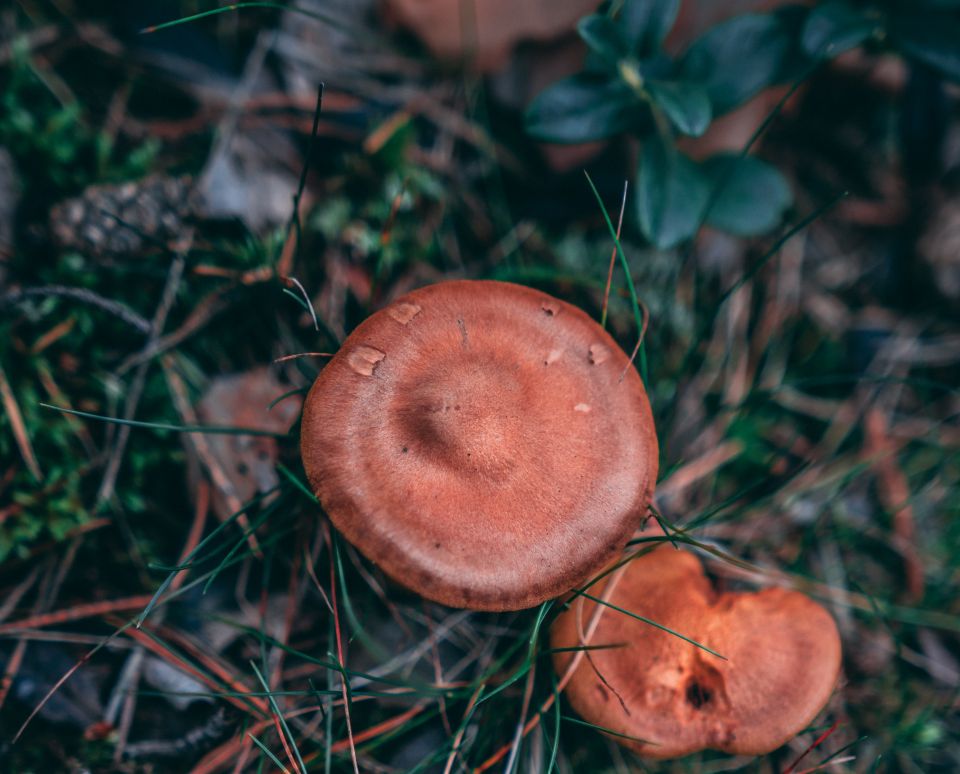
Cortisone is often used in conventional medicine for various inflammatory processes and shows its effect, but unfortunately must always be expected with many sometimes serious side effects. Modern research shows now, which is already well-known in the asiatic area for thousands of years: The welfare mushroom Reishi shows an amazing effect with the application areas of the Kortisons, however completely in the opposite to this without side effects!
Promising name
Its appearance is not quite as spectacular as its medicinal effects. After all, the fungus, which grows mainly on deciduous trees, has a shiny appearance, which is why it is called Glänzender Lackporling in German. Its scientific name Ganoderma lucidum also indicates this (Greek ganos = shine and derma = skin and Latin lucidus = shining, glossy). However, the medicinal mushroom has more meaningful names in the Asian region, where it has been used successfully for thousands of years in a wide range of medical applications. In Japan it is called Reishi “divine mushroom” and in China even Ling Zhi “divine mushroom of immortality”. However we want to call it, it is one of the most significant medicinal mushrooms and probably one of the oldest medicines in the world and almost everything that was written in ancient China about the effect of Reishi has been proven in scientific studies in recent years.
Wide range of application
There is hardly any other medicinal mushroom whose field of application is so broad. It can be used successfully for liver disorders, allergies, inflammations of all kinds, but also heart and lung diseases and even in the fight against cancer. Why this diversity? So far, about 400 bioactive substances have been detected in Reishi , including about 150 so-called triterpenes, on which I would like to focus here.
Triterpenes
These secondary plant substances, which protect the mushroom itself from attack by microorganisms, also have interesting effects in the human body. Namely, triterpenes curb histamine release, which is responsible for swelling, redness and itching, and thus have an anti-inflammatory effect. In principle, they can be used for all diseases for which steroid hormones – such as cortisone – are normally used. But in contrast to cortisone, therapies with Reishi are free of side effects! In principle, inflammation is a positive protective and defensive reaction of the body, but if the complex inflammatory process is derailed and chronic inflammation occurs, a negative cycle develops that is almost impossible to control. This is where the triterpenes can come in!
Cortisol and cortisone
But when is cortisone used?
The drug cortisone mimics in the body the effect of the endogenous hormone cortisol, which is produced in the adrenal cortices and whose secretion is controlled by the brain. Normally, about 8 to 25 mg of cortisol is produced per day, with the largest amount being released early in the morning. Only in times of stress, such as illness, injury or psychological strain, does the body need more cortisol. In this case, it can produce up to 300 mg of cortisol per day. But after a while, the increased production is stopped to protect the body, because the more cortisol is only useful in the short term and the organism would otherwise be damaged!
Primarily, the drug cortisone is used against overreactions or misreactions of the immune system (allergies, autoimmune diseases), as well as against inflammations and swellings in the body (e.g. inflammatory rheumatic diseases, inflammatory lung diseases such as asthma, inflammatory skin diseases, chronic inflammatory bowel diseases, etc.). It is also very often used when the actual cause of the inflammation has not (yet) been found. Cortisone is a very effective drug, which has its justification in certain situations, but unfortunately the list of its side effects is also very long and it should therefore never have to be used for a long time.
As mentioned, it mimics in the body the effect of the hormone cortisol, but in much higher doses, hence the risk for side effects. With the administration of the cortisone medication, one often has to exceed the limit that would originally be intended by the body, because one needs the anti-inflammatory effect. This in turn leads to sometimes massive side effects.
Reishi spores instead of cortisone
Therefore, it is even nicer when in situations in which one would have to resort to high doses of cortisone in conventional medicine, the Reishi medicinal mushroom can provide relief and even without the dreaded side effects of cortisone! In particular the Reishi spores are to be mentioned, since in these the active substances are to be measured in most concentrated form. Therefore, they can be considered the most valuable part of the mushroom. The oval yellow-brown Reishi mushroom spores, which serve the mushrooms for asexual reproduction, also have a much higher bioactivity of the mentioned ingredients compared to other parts of the mushroom.
Aronia berry
Aronia can also be mentioned here as a natural cortisone substitute. It inhibits the so-called cyclooxygenases 1 and 2 (COX1 and COX2), these are inflammatory factors. Aronia has been very successful in allergies, but also in chronic inflammatory processes, such as arthritis. Aronia is also free of side effects, but it contains all vitamins (except B12 and D), minerals and trace elements and a lot of OPC (Oligomeric Proanthocyanidins), which makes it an extremely powerful antioxidant!
One last interesting detail
Above I mentioned the endogenous hormone cortisol, which is increasingly produced by the body during stress. However, if this stress lasts for a longer period of time, which unfortunately is not uncommon in today’s world, the adrenal glands eventually fall into a state of exhaustion. The cortisol level is now no longer elevated, but too low. This leads to a so-called burnout; an apt word, because such people are indeed physically and psychologically burned out. It takes a long time to overcome burnout and it requires outside help, as well as a change in stress-inducing lifestyle habits. To naturally re-stimulate cortisol production, I can recommend cayenne.
If this topic interests you: Read my report on burnout!
